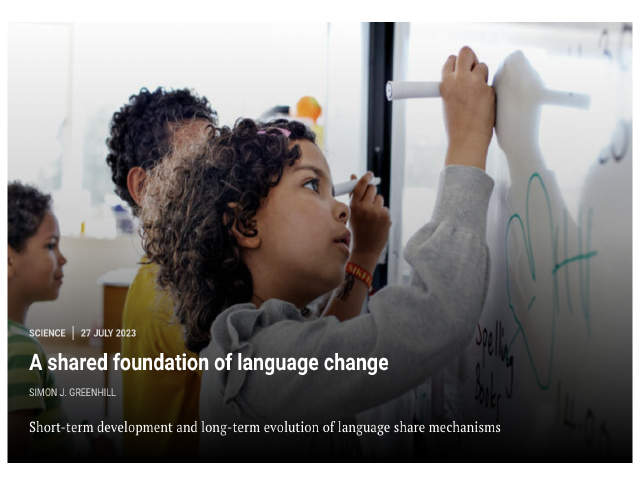A shared foundation of language change

Authors:
Citation:
Greenhill SJ. 2023. A shared foundation of language change. Science, 6656, 374-375.
Details:
Published: 7 July, 2023.
Download:
Abstract:
As the world changes, humans encounter new things that need to be described using a finite set of words. A common strategy for labeling these novelties is to reuse existing words—i.e., word meaning extension. For example, “mouse” can refer to a computer control device. Children also creatively overextend word meanings as they learn their languages. The need to name novelties has been present during the evolution of language, often resulting in the use of one word to express two different meanings. For example, Russian labels (colexifies) both “tree” and “wood” with “derevo” (1); this is a common pattern worldwide (2). On page 431 of this issue, Brochhagen et al. (3) present evidence that the overextension process that gives rise to new terms in the short term is the same process that generates patterns between languages over the long term. Their findings have major implications for the study of language change over evolutionary history.